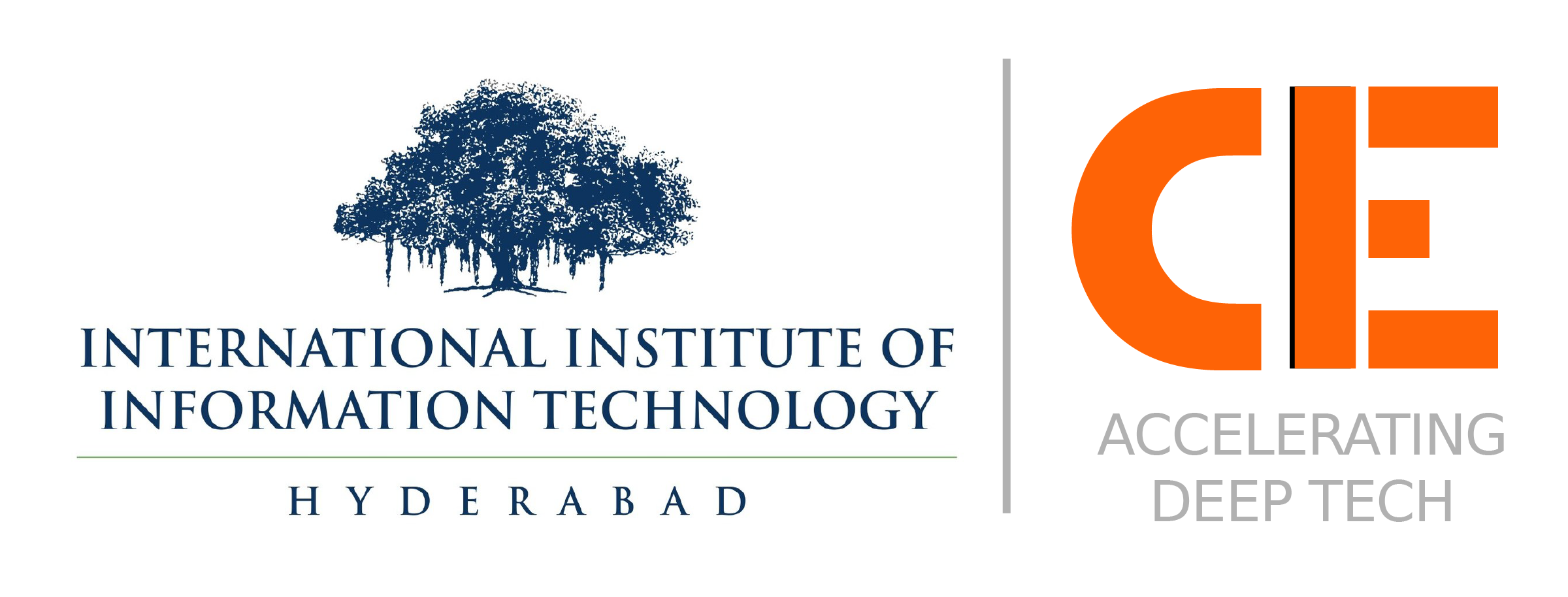Deep technologies are new and noteworthy advances over technologies that are currently in use. Deep technology has extensive research or R&D at its heart for bringing the seed to the market to cater to the needs of customers. The importance of research lies in addressing major and pressing societal needs. These technologies are hard-secured and by IP which is not so easy to reproduce, giving an edge to startups through competitive advantage or barrier to entry.
Most Deeptech startups originate from leveraging such emerging technologies to capture the value and deliver to the customer. This process of deploying deep technologies is dualistic. One, where researchers or academicians build the technology as a part of their on-going research and then innovators pick it from there and find use-cases to generate value. Two, an Entrepreneur is building a solution that has emerging tech as its backbone. In this case, there is an already identified need to which seed is required. To accelerate innovation, the best way is to match the need with the seed of technology.
At CIE IIITH, we leverage research output from IIITH labs to Entrepreneurs (EIRs) and help them build a Deeptech Startup with social or commercial applications. We also engage startups with the professors to build products that have a dependency on the latest research through a long-term co-creation model (Root Node).
CIE IIITH organized a Roundtable with 7 Startup founders, 5 on a panel with 2 other as the moderators, to understand the nuances of why and how do they seek research connect.
Building solutions through Research
Reflecting on the age-old industrial problem with sales, Ananth from Dave.ai mentioned how sales used to happen majorly through humans apart from software solutions. A growing and evolving population need evolving solutions and hence Dave.ai, leveraged intelligence(research) to develop their virtual sales avatar.
Startups usually spend around 2-3 years to develop their product, depending on the sector. In the case of Healthcare and Medtech space, the time spent could be more due to extensive R&D, raising money for all the stages, getting approvals on clinical trials etc. As a startup progresses from lab to land, the amount of money and time spared for research diminishes and Market research takes over.
Startups pointed out nuances when picking the second approach – taking the seed of research and identified the problem to solve. They typically face the challenge of a lack of resources for building the product and delivering value.
For Hyreo – a recruiting platform, the need to approach research surfaced for technical validation and research-oriented feedback to go deeper on the NLP.
Research community gives the Startup a different perspective and it takes a long time. It’s not a band-aid, but more of a permanent fix” – Arun, Hyreo
For most of the startups based on emerging technologies, Data is of great essence to disrupt the market or to create new markets. But access to useful data remains a major problem.
In the Healthcare sector, research is the first thing which is asked for to cut some slack to your Startup. Since R&D occupies major chunk of the journey, it is hard to say whether the product came out of research first.
Radiate – an AI-based eye disease detection Startup, approached research for building tech. The Startup had identified a problem first, then developed a solution in the combination of research in healthcare and IT. In taking this approach of identifying the problem first, market research precedes lab or tech research. Again, it takes months and years to collect data, you need tools for the whole data gamut – collection, refining and expertise to make it work for you.
Research lies at heart for Deeptech startups
Aquatic Livelihood is leveraging IoT, ML, Fisheries Science and a proven grass-root connect with marginalized fishing communities, to help fishers build resilient livelihoods through sustainable backyard aquaculture. The Startup depends 80% on research for its hi-tech and 5-10% on other aspects.
For Docturnal – a point of care screening and diagnostics provider of non-invasive and proactive detection of diseases, Medical research, Technical research, Market research (To make people buy the product) combinedly stands at 70%.
Our team does research every day, with limited resources. Outside India, everyone was excited about what we have to offer because collecting cough samples is something that nobody has done before and we managed to stock 8k samples in over 3 years. Such collection of data doesn’t come easy, collection happens at Grassroot level and not inside the AC offices. Collaborating with IIITH was like lifting the burden off our shoulder – Arpita, Docturnal
Considering the Market research, in context to B2B segment, Arun from Hyreo stressed on the importance of having use-cases and selling to customers. Sometimes the customers do not know if they have the need for the offered product but they build the taste for it, with early adopters leading the way.
It is common for a Deeptech Startup to struggle with the value creation for customers. It takes a lot of iterations to get the right fit and in the process, new problems are captured. This loop of iterations-feedback-iteration makes the algorithm robust and eventually enhances the value offered to a customer.
Hacking Research to startups’ benefit
We have established by now, that research is an important aspect when it comes to Deeptech-based startups. But it is crucial to lay out a path and plans to pursue it otherwise it may take longer for a Startup to reach its milestones when time is of the essence for it. Some of the ways that came out of the discussion are:
- Understand why of every stakeholder. Got in touch with as many as possible early on. This helps in capturing more value through more datasets coming from these stakeholders
- Plan collaboration with research institutes way ahead, look out for programs like RootNode(IIITH) for tech support
- Indulge in Strategic partnerships early on, through incubators as they open doors for such partnerships
- Work on the Visibility – to pick the right kind of partnerships
Problems when collaborating with research – Good things never come easy!
Deliberating on the nuances of approaching research collaboration, Startups pointed out different challenges from their unique experiences.
With research, the direction and its relevance to solving the problem at hand is of paramount importance. Sometimes, you may get distracted and lose momentum. You learn things on the way, with time. It is a time taking process and startups must not ignore this when planning for collaboration.
Another point is that for Academia and Research Institutes, productization is never a priority and therefore even after a lot cutting edge work done but when it comes to commercialization, takes a downhill.
Some other issues discussed are:
- The collaborative terms and patent regulations in India, are stricter than necessary
- Building for lab and building for production are two completely different cases
- Knowledge transfer has its own nuances. The person who wrote the algorithm is the best one to make it work for you otherwise its 6-8 months which is a lot for Startup standpoint
IIITH leading the way
Acknowledging and applauding the efforts put in by IIITH to foster Deeptech community and promote innovation over the years, startups shared their suggestions for IIITH to thrive and expand their horizons through
- Collaboration with the International community; Global research Institutes and Universities
- Extending the pool of sources for funding
- Efforts to change the way people perceive research in India, take initiative for collaborations and establish thought leadership
- Multi-fold collaborations – Frame new problems, consortium to pick current problems from Industry, Government and other Organizations
Insightful? Watch this space for more such takeaways ↑→ https://cie.iiit.ac.in/startup-jukebox/
Know more about our ResilienceUnlocked series here https://cie.iiit.ac.in/resilience-unlocked/
Until next time!
– Sunita Kumari, Team CIE


